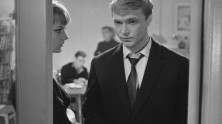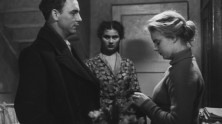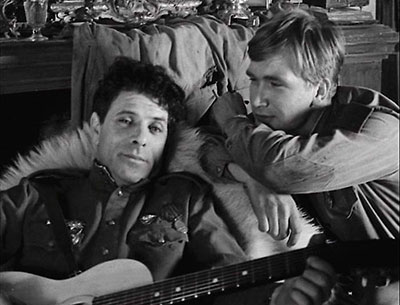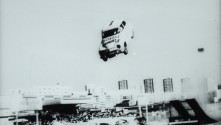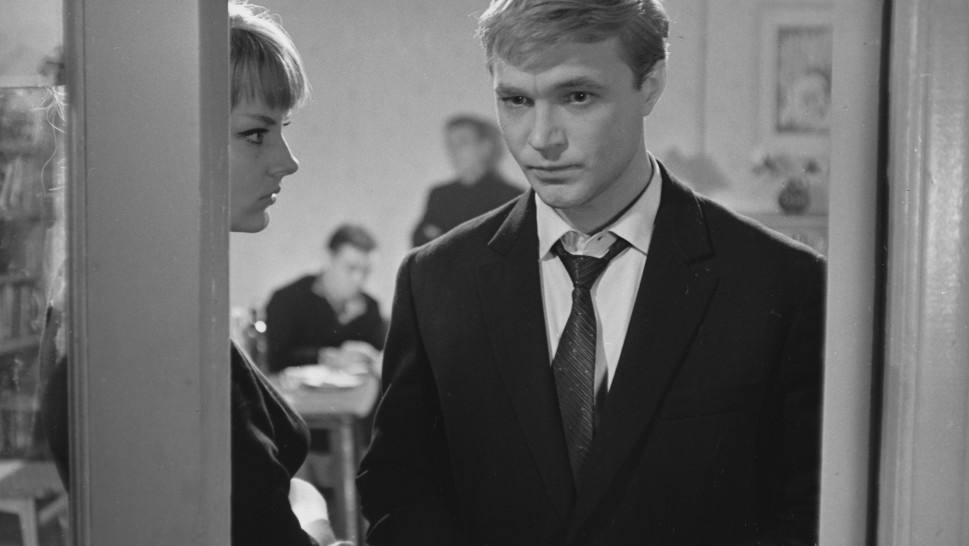
Ilyich's Gate
(Zastava Il’icha)
Screening on Film
With Valentin Popov, Nikolai Gubenko, Stanislav Lyubshin.
Soviet Union, 1962, 35mm, black & white, 197 min.
Russian with English subtitles.
Moscow, early 1960s. Three friends wonder about their future and the meaning of life, and try to find their place in society. “This is, of course, a deeply personal picture,” Khutsiev notes. “I even used to say that the three main characters were all me. One of them stood for my inner turmoil and doubts; the second one, for my family situation at the time; and finally, the third one was the person I aspired to be.”
Arguably the most seminal Soviet film of the 60s, Ilyich's Gate is an encyclopedia of life in Moscow during the era: a meticulous inventory of hopes, illusions and disappointments. One generation older than his characters, Khutsiev co-wrote the script with twenty-two-year-old VGIK student Gennady Shpalikov in order to authentically craft an indispensable time capsule with iconic scenes such as the party with Andrei Tarkovsky and Andrei Konchalovsky among the guests, the Labor Day demonstration, and the poetry reading at a museum featuring the most famed writers of the time (the latter sequence fell prey to censorship when a re-cut version came out under the title I Am Twenty). And yet, the most memorable scene ever filmed by Khutsiev is the autobiographical finale—the meeting with the dead father killed in combat. Having lost his father in 1937 to Stalinist purges, Khutsiev would continually return to this search for the lost father, a motif that spoke to both generations orphaned by war.

